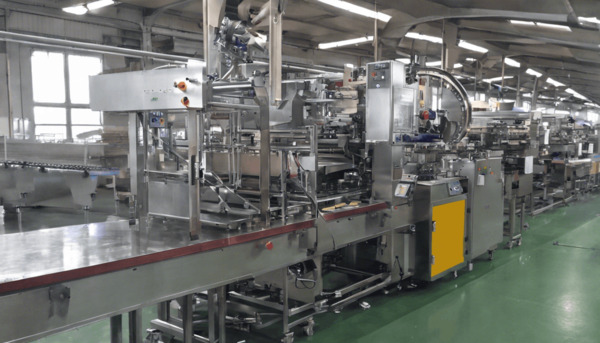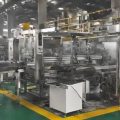
Introduction
In the world of packaging, sealing machines play a crucial role in ensuring the integrity and longevity of products. Whether you’re dealing with food, beverages, or other goods, the right sealing machine can make all the difference. This article delves into the various types of sealing machines available, with a special focus on the 1 ltr water bottle packing machine.
Types of Sealing Machines
Impulse Sealing Machines
Impulse sealing machines are widely used for sealing thermoplastic materials. These machines use a brief pulse of electricity to heat the sealing element, which then melts the material and forms a seal. They are ideal for sealing bags and pouches, making them a popular choice in the food and pharmaceutical industries.
Continuous Band Sealers
Continuous band sealers are designed for high-speed sealing of bags and pouches. These machines use a conveyor belt to move the packaging through the sealing process, allowing for continuous operation. They are perfect for businesses that require a high throughput of sealed products.
Vacuum Sealing Machines
Vacuum sealing machines remove air from the packaging before sealing it, which helps to extend the shelf life of the product. These machines are commonly used for food preservation, as they prevent oxidation and the growth of bacteria. Vacuum sealers come in various sizes, from small countertop models to large industrial units.
Induction Sealing Machines
Induction sealing machines use electromagnetic induction to create a hermetic seal on containers. These machines are often used for sealing bottles and jars, making them ideal for the beverage and pharmaceutical industries. The 1 ltr water bottle packing machine is a prime example of an induction sealing machine.
Specialized Sealing Machines
1 ltr Water Bottle Packing Machine
The 1 ltr water bottle packing machine is specifically designed for sealing 1-liter water bottles. This machine ensures a tight and secure seal, preventing leaks and contamination. It is an essential piece of equipment for water bottling plants, ensuring that each bottle is sealed to perfection.
Heat Shrink Sealing Machines
Heat shrink sealing machines use heat to shrink a plastic film around the product, creating a tight and tamper-evident seal. These machines are commonly used for packaging items such as CDs, DVDs, and various consumer goods. They provide an added layer of protection and enhance the product’s appearance.
Foot Operated Sealing Machines
Foot operated sealing machines are manual devices that require the operator to use a foot pedal to activate the sealing process. These machines are suitable for small-scale operations and are often used for sealing bags and pouches in small businesses or home-based enterprises.
Choosing the Right Sealing Machine
Consider the Product
When selecting a sealing machine, it’s essential to consider the type of product you are packaging. Different products have different sealing requirements, and choosing the right machine can ensure the integrity and longevity of the product.
Production Volume
The production volume is another critical factor to consider. For high-volume operations, continuous band sealers or automatic sealing machines may be the best choice. For smaller operations, manual or foot operated sealing machines may suffice.
Budget Constraints
Budget is always a consideration when investing in new equipment. While high-end sealing machines offer advanced features and higher throughput, there are also cost-effective options available for smaller businesses or startups.
Conclusion
Sealing machines are an integral part of the packaging process, ensuring that products remain fresh and secure. From impulse sealing machines to the specialized 1 ltr water bottle packing machine, there is a wide range of options available to suit different needs and budgets. By understanding the various types of sealing machines and their applications, businesses can make informed decisions to enhance their packaging operations.





